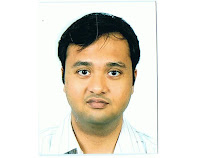Yesterday i attended a TiE networking event with Subroto Bagchi, Co-Founder of MindTree Consulting. He showed a video featuring high performance entrepreneurs V.G. Siddhartha (Cafe Coffee Day), Captain Gopinath (Air Deccan), and Kiran Mazumdar Shaw (Biocon).A point Subroto was trying to make was that these people stood apart from others because they had a vision of a future that did not exist when they started out. They looked at a bigger picture rather than just one cool product or gizmo. Once they had their focus on the bigger picture, the pieces begin to fall in place. In the video Kiran says 'I've been lucky, but one thing that always helps is to be prepared." Gopinath says ' In hindsight, its easy for people to say that something will not work, but i never thought along those lines, i always focused on how to do it, how to help every Indian fly". Siddhartha says " Initially my friends said that why would Indians pay 25 bucks for a cup of coffee when they can get it for Rs 5 at a Darshinis", so his business model wasn't the most obvious at that time, though today we take it for granted that coffee is an experience (not just a drink) that we are willing to spend on. Kiran's message was 'if i can do it, everyone can'. I think that Kiran's story is one of determination. She wanted to make a mark in her career, and when she couldn't find a job as brewer, she didn't let her efforts end there due to temporary failure or setbacks. She went on to create a career for herself that she could not have through a job, because such a job did not exist at that time. She has created jobs for many, and she is a huge inspiration for entrepreneurs and woman entrepreneurs in particular.
In his presentation, Subroto talked about the attributes of a high-performance entrepreneur, of which he said that what was most important is "Love for money." This is a quality that Donald Trump calls 'Wealth motivation", which i will discuss in another post. Subroto says that unless you want to make lots and lots of money, you won't become a high performance entrepreneur. This concept doesn't contradict social entrepreneurship according to Rostow Ravanan (CFO MindTree), because even to contribute to society, you need to make money. With limited financial resources, it is difficult to even make a considerable impact on society through entrepreneurship.
Subroto says that while building a team, do not go by familiarity or personal comfort, but by proven competence. Friends rarely disagree (e.g., to drink beer or not, which movie to see) and when they do, they do not handle conflict well. It is important to understand that it is OK to disagree when you have complementary team. Also, he stresses on ability to multi-task, shared vision and transparency.
Other points Subroto makes are to focus on completing the business plan (once you have a strong business plan, raising funds will not be difficult), get a CFO who looks at finance as strategy (not just a bookkeeper), invest in an accounting package, get processes and systems in place early on, raise money ahead of time, and report accounts to investors on time.
Also, he spoke about choosing your customers wisely, not just on short term monetary gains, but to choose customers who will enrich you intellectually. Also to choose investors not just on 'non-interference' but choose those who will question and guide you. Finally, as an attitude, he says we should focus on feeding opportunities, not just on solving problems. The only way to combat problems is to stay ahead of them.
Thursday, July 19, 2007
Wednesday, July 18, 2007
7 Habits of highly effective people
I've been reading Stephen Covey's book. The first habit is to be proactive. We just cannot stress how very important this habit is. Without this habit, the others cannot be cultivated. It is the most essential habit to be effective. Various issues that concern us are placed in the Circle of concern, and those of which we have some control over are placed in the Circle of Influence. By focusing on what we have control over and not on what we do not, we gradually expand our circle of influence. Proactivity leads to increased control and influence. Proactive people as a rule are much more effective than reactive people, who tend to worry and crib, while choosing to neglect what they can and should be doing.
Proactivity is an essential aspect my own personal values, as well as those of my organization, Meta Yage IP Strategy Consulting. We do whatever we can to add value to our clients to the best of our abilities. We do not focus on limitations and instead focus on our client's business objectives and how we can help achieve them. Where we reach a roadblock, we seek help and from a network of experts to get over limitations. By taking a proactive approach, we shall gradually be in a position of influence in the Intellectual Property space.
Proactivity is an essential aspect my own personal values, as well as those of my organization, Meta Yage IP Strategy Consulting. We do whatever we can to add value to our clients to the best of our abilities. We do not focus on limitations and instead focus on our client's business objectives and how we can help achieve them. Where we reach a roadblock, we seek help and from a network of experts to get over limitations. By taking a proactive approach, we shall gradually be in a position of influence in the Intellectual Property space.
Subscribe to:
Posts (Atom)
